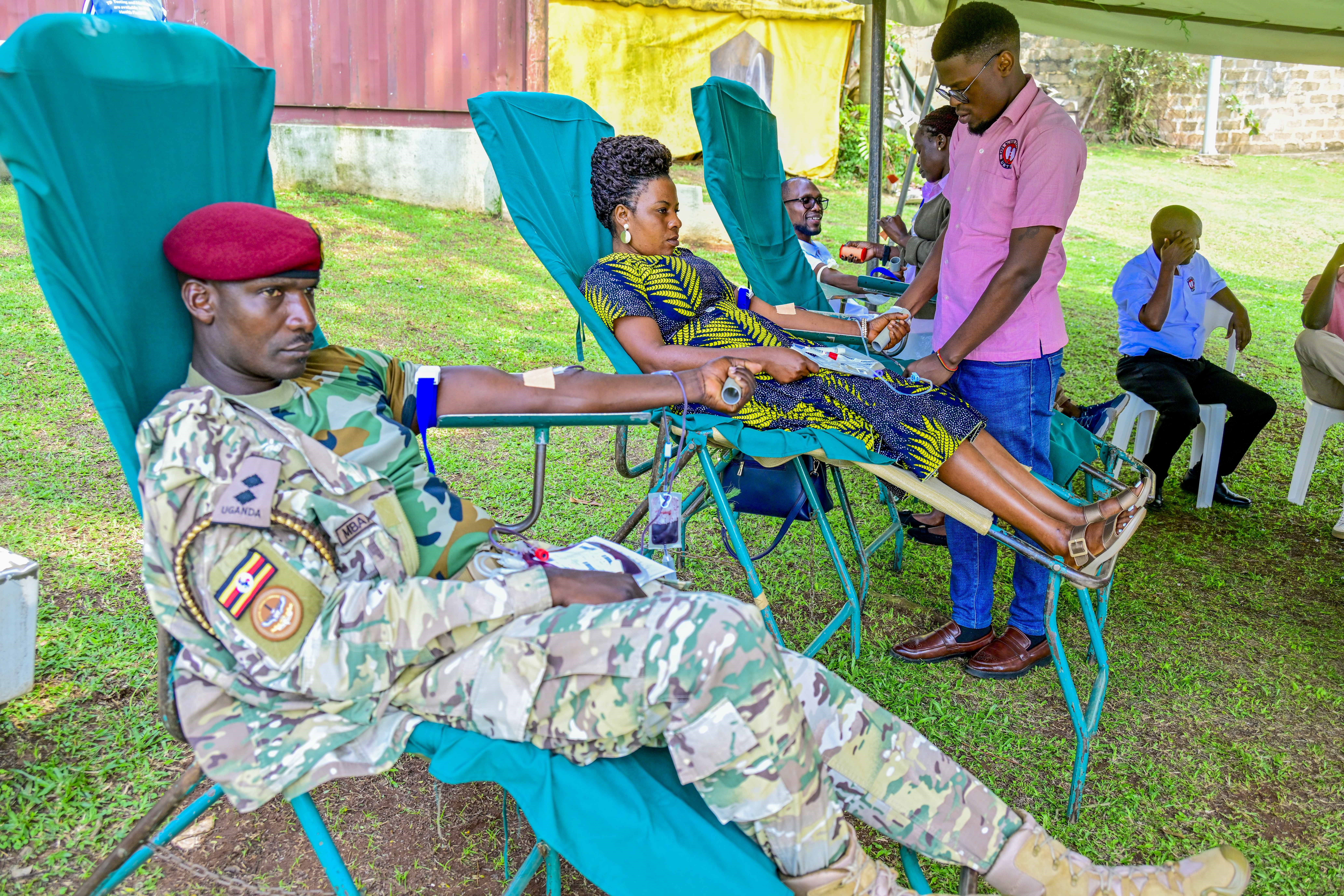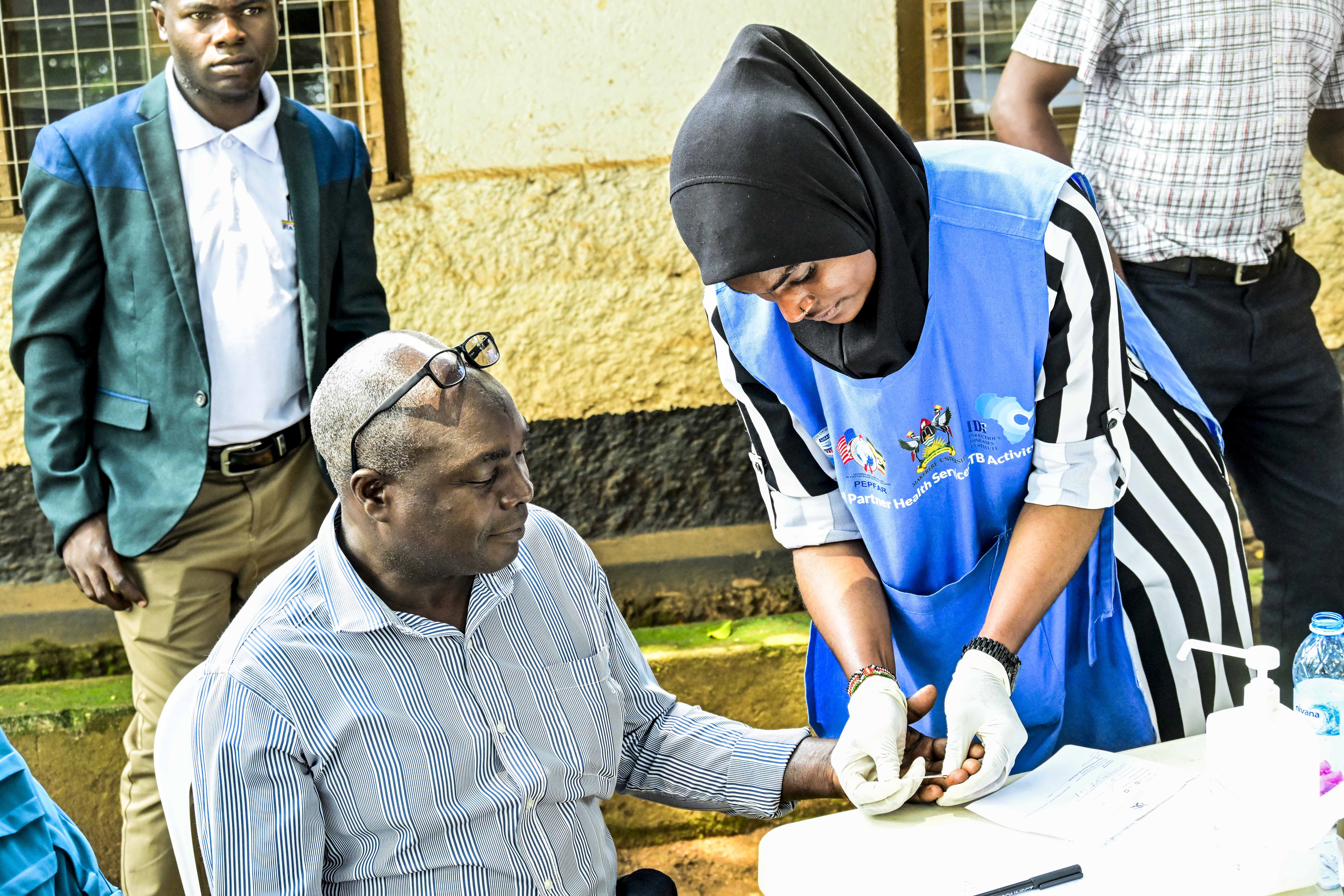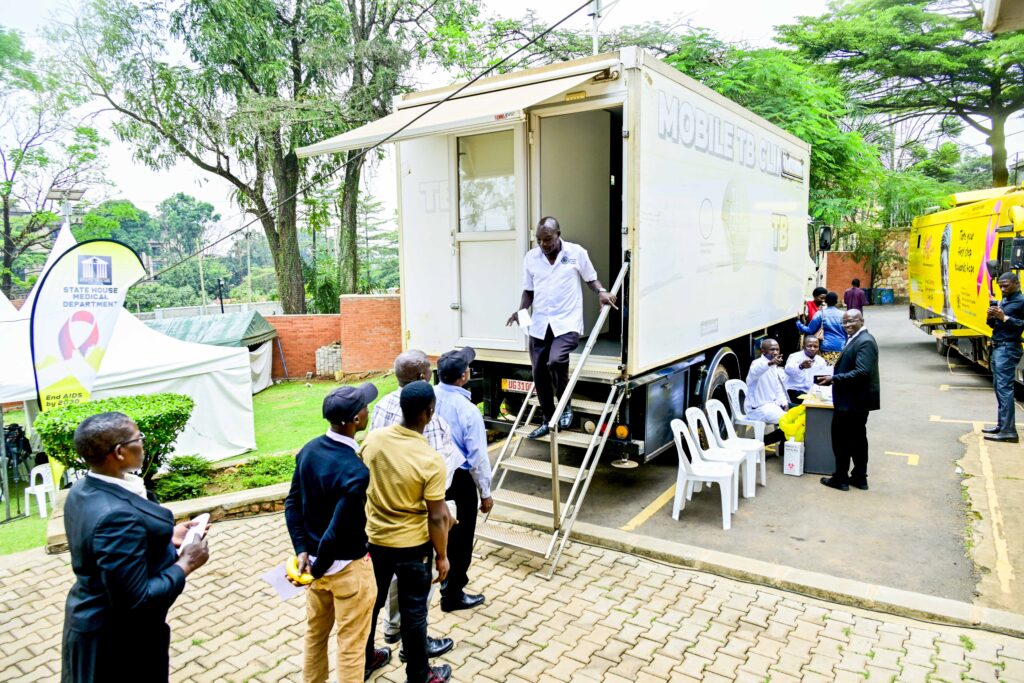
KAMPALA.The State House this week hosted a health camp under its HIV and Tuberculosis (TB) mainstreaming program, aimed at raising awareness and strengthening the fight against communicable and non-communicable diseases among staff and the wider public.
The initiative, organized by the State House Medical Department, brought together government officials, medical experts, civil society actors, and faith leaders to emphasize prevention, testing, and treatment as Uganda pushes towards its goal of ending HIV and AIDS as a public health threat by 2030.
Opening the event, Mr. Benon Twinobusingye, the Assistant Commissioner and Head of Human Resources at State House, who represented the State House Comptroller, Ms. Jane Barekye, emphasized the importance of investing in the health and well-being of staff as a foundation for national productivity.
“The main objective of this camp is to continuously raise awareness about TB, HIV, AIDS, cancer, and other diseases that threaten our people. As you might all be aware, the National Development Plan emphasizes investing in the promotion of people’s health, which constitutes a fundamental human right for all Ugandans,” he said.

Mr. Twinobusingye noted that the State House had lost a staff member to Hepatitis B a year ago, a painful reminder of the urgency of such initiatives. He stressed that good health is essential for a motivated and productive workforce, not only at the State House but across the nation.
Uganda, he said, still faces enormous health challenges: “Despite progress in treatment coverage, statistics suggest that we are likely to fall short of our 2030 target of ending HIV and AIDS as a public health threat. Similarly, TB continues to take a big toll on the national health budget.”
Dr. Elijah Ssemaganda, Assistant Director of the State House Health Monitoring Unit, emphasized the importance of awareness and preventive action.
“If today we can achieve the goal of public awareness and call upon all of us to go for health checks, then we shall be good to go,” he said.
He also appealed to participants to respond to humanitarian calls such as blood donation, calling it a “lifesaving commodity which only our bodies can produce.”
Uganda’s HIV and AIDS burden:
Mr. Tom Etii of the Uganda AIDS Commission gave a sobering account of the current HIV situation. He applauded the President for his four-decade leadership in the fight against the epidemic and the First Lady and Minister of Education and Sports , Maama Janet Museveni, for championing the elimination of mother-to-child transmission of HIV.

According to Mr. Etii, 1.5 million Ugandans currently live with HIV, out of a population of 45 million. Of these, 1.3 million are on treatment, costing the government up to 1.4 trillion shillings annually. Yet challenges remain, with 37,000 new infections recorded last year alone.
“That means every hour, five Ugandans get infected, and every day, 100 new cases are registered. In the same year, about 20,000 people died due to AIDS-related illnesses. That translates into 57 deaths every week,” he said.
Mr. Etii attributed the persistence of new infections to multiple sexual partnerships, transactional sex, low condom use, and complacency among men who shun testing and treatment. He urged Ugandans to practice faithfulness, responsibility, and integrity to curb the spread.
“We must engage men to protect young women and girls. “The high rate of teenage pregnancies is tied to the same transmission routes of HIV. Men must take responsibility,” he added.
The health week also featured a moving testimony from Rev. Canon Gideon Byamugisha, Africa’s first priest to publicly declare his HIV-positive status. Married for 30 years to his wife, Pamela—also living with HIV—Byamugisha highlighted the stigma he has faced across the world, from being expelled from hotels to being shunned in churches.
“In Indonesia, we were thrown out of a hotel after people discovered we were HIV-positive. The manager even burned the mattresses and blankets we had used,” he recalled.
“At such times, only the love of God kept me strong. I would affirm myself by singing: Yes, Jesus loves me,” he added.
Despite discrimination, Canon Byamugisha has continued to advocate for openness, testing, and treatment adherence. He challenged men in particular to overcome fears around disclosure and testing.
“Science is enough to end AIDS. We have the medicines, we have leadership, and we have the means. What is preventing us is stigma and complacency,” he noted.
Dr. Flavia Matovu Kiweewa, Director of Research at the Makerere University–Johns Hopkins University (MUJHU) Research Collaboration, shared new scientific interventions for HIV prevention.
She highlighted the availability of Pre-Exposure Prophylaxis (PrEP)—a daily pill that significantly reduces the risk of infection if taken consistently. However, adherence remains a challenge, particularly for mobile populations such as young women working in mining areas, bars, or fishing communities.
“There is still a lot of stigma associated with PrEP because it looks similar to HIV treatment drugs. This prevents many at-risk individuals from using it, even though it is available in most regional referral hospitals and PEPFAR-supported facilities,” she said.
Dr. Kiweewa pointed to long-acting prevention options, such as the dapivirine vaginal ring, which releases protective drugs over a month, as promising alternatives. She also emphasized prioritizing pregnant women in treatment programs to reduce mother-to-child transmission.
The event was attended by officials from the Ministry of Health, Uganda Cancer Institute, Uganda Blood Transfusion Service, Uganda AIDS Commission, and the State House.
Speakers repeatedly acknowledged the leadership of President Yoweri Kaguta Museveni and the government’s policy of mainstreaming health interventions across all institutions. State House was commended for allocating 0.1% of its resources to support HIV and TB mainstreaming, setting an example for other ministries, departments, and agencies.
The discussions throughout the health week reinforced the need for collective responsibility in combating HIV, TB, cancer, and other diseases. Speakers urged staff, parents, and communities to take personal health seriously by regularly testing for HIV and other conditions, seeking treatment without fear of stigma, and promoting healthy lifestyles.